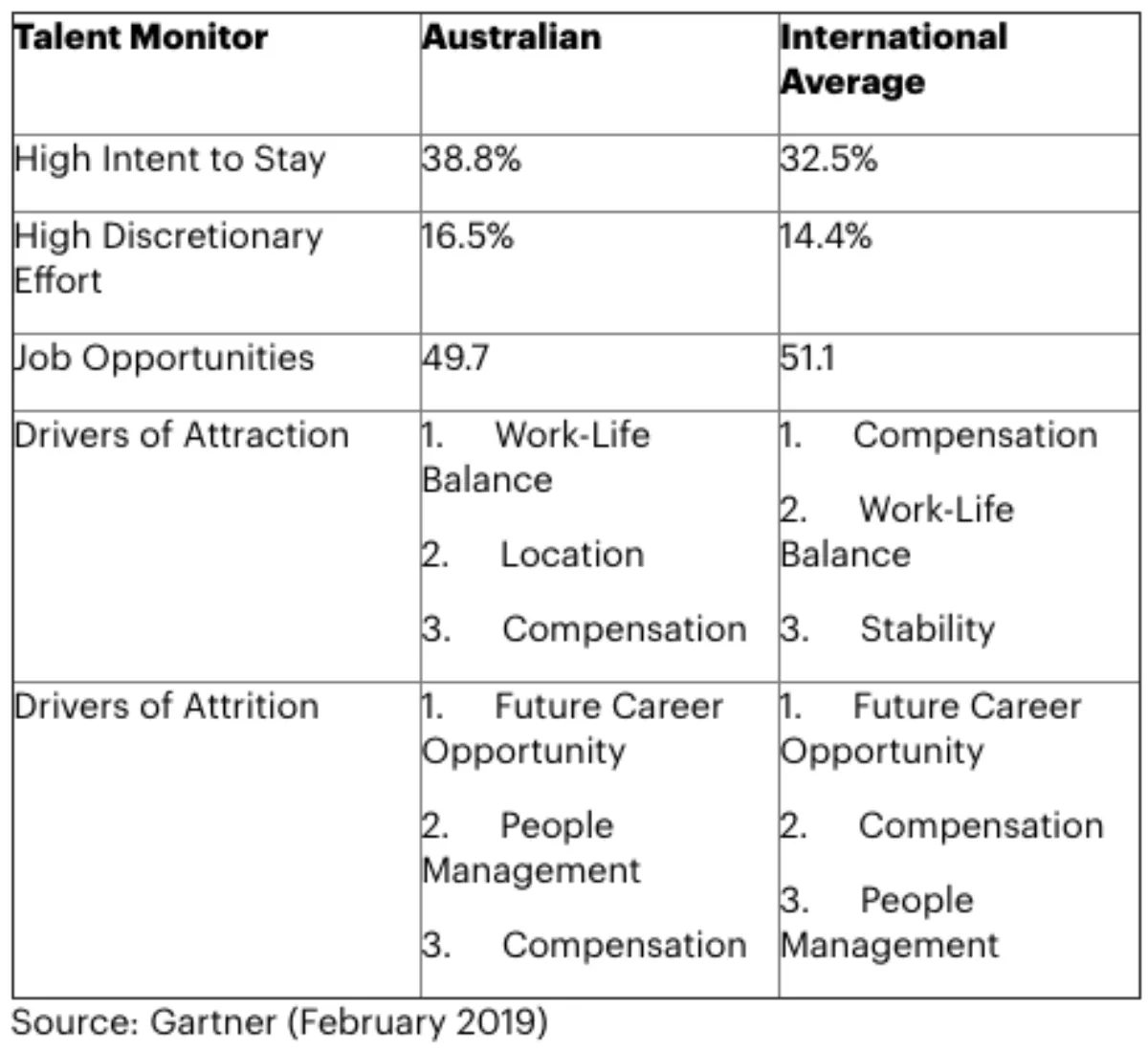
Gartner: Good talent put off by old tech
Organisations must find a way to address the needs of modern workers as employees grow increasingly frustrated with workplaces that expect them to work with outdated, slow and complex technology, according to Gartner.
Technology now ranks in the top ten reasons Australian employees will leave their current role, according to Gartner's 4Q18 Global Talent Monitor.
The data reveals technology rose eight places from 3Q18 to come in ninth on the list of key attrition drivers for Australian employees.
"People have become so used to advanced technology in their day-to-day lives, that they expect the same thing from their workplace. However, businesses are having a hard time matching the speed at which technology is adopted at home," says Gartner HR advisory leader Aaron McEwan.
"It's not surprising that employees are becoming frustrated when they find themselves wasting valuable time navigating complicated systems and processes that utilise slow and old technology. It's unproductive and inefficient for everyone involved.
Compensation has also become increasingly important for Australian employees, rising four places to the number three reason Australians cite for leaving their jobs.
Alternatively, for the first time in five years, compensation is the third driver of attraction for Australian workers when considering a new position.
"The combination of expectations over compensation and the tools and tech employees are given to do their job often feel like a representation of an individual's value or worth to the company. Feeling valued by your employer is intrinsically linked to the employee experience and really impacts how a person feels about their job," says McEwan.
These factors may have already hit the willingness of Australian employees to go above and beyond at work as discretionary effort levels fell 4.5 per cent year over year – from 21% in 4Q17 to 16.5% in 4Q18 (see Table 1).
Highlights from the 4Q 2018 Global Talent Monitor

Global Talent Monitor data is drawn from the larger Gartner Global Labor Market Survey which is made up of more than 22,000 employees in 40 countries, including 848 in Australia this quarter. The survey is conducted quarterly and is reflective of market conditions during the quarter preceding publication.
According to McEwan, businesses can no longer ignore the needs of their employees and must start thinking of their workers like they do their customers; making it a priority to offer a personalised, seamless and efficient experience.
"For organisations, the answer doesn't lie in allowing staff to bring their own devices or offering more money. It's recognising that these are just a part of the broader employee experience," McEwan said.
"This means understanding and focusing on what employees' value from their experiences with the company. Rather than waste time implementing policies, systems and processes that have no impact on how employees feel about their company, organisations need to talk to employees to determine how to retain current and attract new employees.
Gartner advises organisations to tailor employee experiences to suit the needs, desires and goals of the individual rather than the collective.
By understanding what employees value the most, HR leaders can positively impact the employee experience and lessen the desire for them to seek alternative employment opportunities.


